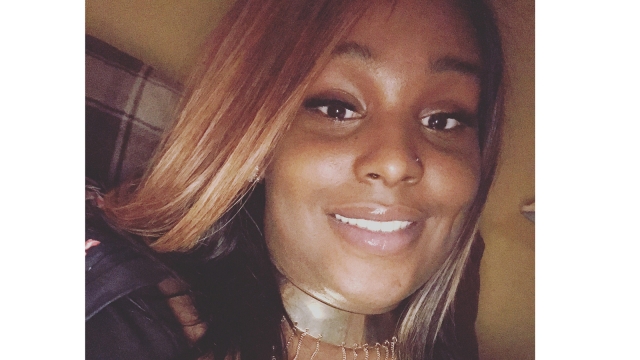First Love Who You Are: Building Community with Chastity Nicole Petty Carter

In her role as the program coordinator of the Beyond Identities Community Center for the AIDS Taskforce of Cleveland, Chastity Nicole Petty Carter runs the day-to-day activities of BICC, including the youth center, where Black youth are given resources and training to be advocates in their communities. It’s a space of empowerment, a safe space to get tested and a space to help them “be aware of who they are.”
BICC began in 2004 as a space for LGBTQ people of color. As Carter describes it, it started as a room, and became a “primary, pivotal place in all our lives to help us. BICC put in the groundwork to reach the minority community.”
Carter started going to BICC when she was a young person. When she was 15, she began working for BICC doing HIV & AIDS community outreach work. Carter held several positions at the BICC before eventually leaving to attend university. Then she got the job offer to come back.
Carter also goes out into the community to do education and training.
As a health advocate and expert, Carter sees different, difficult barriers to accessing health care.
Carter says that a lack of representation in health care and services leads many of the queer Black youth with whom she’s working to feel like their health care is outside their control. More broadly, this lack of representation in leadership positions hurts LGBTQ people of color and our movement as a whole.
Allyship is critically important, but to be truly effective, “you have to hire the people you want to reach, and give them the space, the time and the tools to create their own space.”
Carter’s advice to the young people she works with — and to young people looking to get involved in advocacy — is to learn from their elders in struggle.
“For us to finish the race the people before us started, we have to know our history,” she said.
That means understanding the role of ballroom, drag shows and heroes like Marsha ‘Pay it no mind’ Johnson, who was brilliantly and unapologetically herself.
For Carter, resilience comes “by first accepting and loving who you are.” And when you’re protesting, rallying or working in the community, “you have to grab ahold of that piece of light for yourself. Part of it has to be for you.”
Carter lives this lesson every day; she loves her work, but it can be very challenging. “A lot of my work is for the community, but I’m also of the community, and separating the two can be very hard. But what makes it worthwhile is knowing that it is not in vain — knowing my presence means something.”
Carter’s inspiration in this — and in all that she does — is her grandmother, who recently passed away.
“My grandmother was the epitome of strength and love,” Carter said. “She loved and loved unconditionally. That same love keeps me going. She will always be my inspiration.”
Check out HRC President Alphonso David’s Interview with Chastity Nicole Petty Carter:
www.hrc.org/blog/first-love-who-you-are-building-community-with-chastity-nicole-petty-carter?utm_source=rss&utm_medium=rss-feed





















